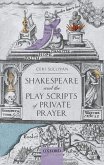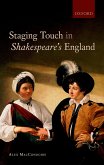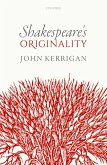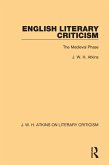Shakespeare and the Comedy of Enchantment argues that enchantment constitutes a key emotional and intellectual dimension of Shakespeare's comedies. It thus makes a new claim about the rejuvenating value of comedy for individuals and society. Shakespeare's comedies orchestrate ongoing encounters between the rational and the mysterious, between doubt and fascination, with feelings moved by elements of enchantment that also seem a little ridiculous. In such a drama, lines of causality become complex, and even satisfying endings leave certain matters incomplete and contingent-openings for scrutiny and thought. In addressing enchantment, the book takes exception to the modernist vision of a deterministic 'disenchanted' world. As Shakespeare's action advances, comic mysteries accrue-uncanny coincidences; magical sympathies; inexplicable repetitions; psychic influences; and puzzlements about the meaning of events-all of whose numinous effects linger ambiguously after reason has apparently answered the play's questions. Separate chapters explore the devices, tropes, and motifs of enchantment: magical clowns who alter the action through stop-time interludes; structural repetitions that suggest mysteriously converging, even opaquely providential destinies; locales that oppose magical and protean forces to regulatory and quotidian values; desires, thoughts, and utterances that 'manifest' comically monstrous events; characters who return from the dead, facilitated by the desires of the living; play-endings crossed by harmony and dissonance, with moments of wonder that make possible the mysterious action of forgiveness. Wonder and wondering in Shakespeare's and other comedies, it emerges, become the conditions for new possibilities. Chapters refer extensively to early modern history, Renaissance and modern theories of comedy, treatises on magical science, and contemporaneous Italian and Tudor comedy.
Dieser Download kann aus rechtlichen Gründen nur mit Rechnungsadresse in A, B, BG, CY, CZ, D, DK, EW, E, FIN, F, GR, HR, H, IRL, I, LT, L, LR, M, NL, PL, P, R, S, SLO, SK ausgeliefert werden.









